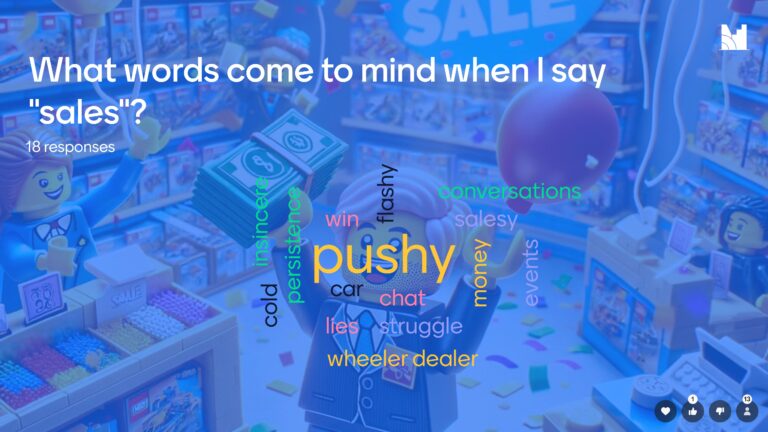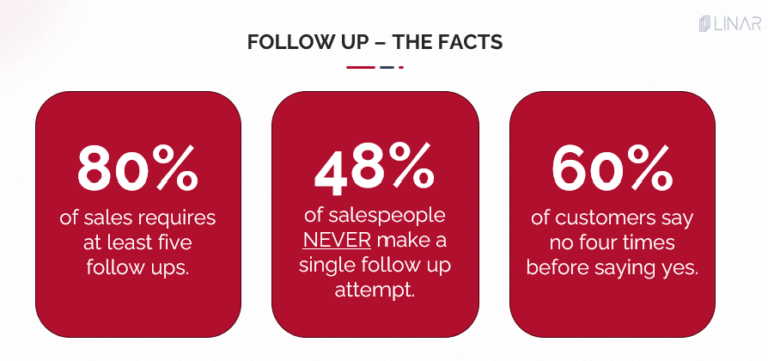Sales CPR
We regularly run sales training sessions for lawyer teams and M&BD teams. One of the first questions we ask is “What one word comes to mind when we say the word sales?”

Answers similar to the above are not uncommon. Sales continues to have a VERY bad rap in professional services as a dirty and grubby activity that other people engage in.
This week we’re going to look at sales through the behaviours we believe are critical to enabling a better sales culture within your firm. We call it Sales CPR ©. Enjoy.
#1. Confidence
Done well, someone who is confident with be engaging, enthusiastic, curious and provide and energy to the conversation that is infectious. The evil twin of confidence, arrogance, manifests itself in talking too much, assuming you know everything and generally dominating a conversation (sound familiar?). In a sales context, think about confidence in the following ways:
- Be vulnerable: you don’t need to know all the answers. It’s OK to say “I don’t know”. Use this to create an opportunity for follow up or to introduce a colleague. Have the self confidence to ask the questions everyone else is thinking but most are too afraid to ask for looking dumb.
- Enthusiasm goes a long way: to build trust and convince your buyer to invest in your product/service, they need to believe that you believe your offering can help them solve a problem. A lackluster discussion with you just going through the motions and reading from a script is not going to cut it. Make sure that whatever is going on in your world, before every sales meeting/call, you take 30 seconds to get into a mindset that is brimming with energy and opportunities. It’s infectious.
- Know enough to be dangerous: whilst you don’t need to know everything (see above), knowing something is good. Become a student of your product / service. Even better, learn (at a high level) the adjacent services you can offer and make introductions. You will only become dangerous if the arrogant evil twin, arrogance, makes an appearance and you overstate your own capabilities. At this point it’s best to introduce a colleague.
#2. Perserverance
Be honest with yourself. Once you’ve engaged with a prospect, sent across some information and/or a proposal, how many times do you follow up with them? The answer is nowhere near enough. Commonly, attendees at our training sessions (both lawyers and M&BD) feel uncomfortable or awkward following up more than twice. Regular excuses include:
“I don’t want to bother them.” ”They’ve got our proposal, they’ll respond when they’re ready.” “I don’t want to seem pushy.” “What if they say no?”
The reality is that you are very likely not to be the most important person in your prospect’s day. They may well be responding to the other 100+ emails they have received or navigating their own internal politics to get you a decision. Or, because they are human, they may have simply forgotten about you.
Get over yourself and have the grit to systematically follow up every interested lead or opportunity. In your follow ups, make sure to add value at every stage. In a world of AI and an increasing number of auto generated follow ups, you have to differentiate yourself. At the engagement & opportunity stage of the sales lifecycle, each follow up should contain additional information on your product/service to support your target with their buying decision. For example, proactively offer up a referee from a similar client who has previously purchased. When you get to the negotiation stage, consider offers to walk through your proposal, answer questions the prospect may have or help with their internal signoff process.
The stats below show what is takes to succeed. Push yourself to get uncomfortable and be better than average.

#3. Resilience
Depending on which stats you believe, somewhere between 8 & 9 / 10 opportunities will result in a “no”. They are pretty overwhelming odds! Given that level of rejection, why would anyone engage in the sales process?
Put simply, because you cannot afford not to. Like it or not, sales is an integral part of being successful within professional services. In order to survive, you need to build up the thickness of your skin to take the inevitable knockbacks. When facing a disappointing result, consider the following:
- It’s not personal: prospects will evaluate your product / service on a large variety of factors (need, capability, prior experience, team, price etc). Too many people we talk to take an adverse decision very personally. This behaviour taints future opportunities for fear of additional rejection. Again, get over yourself and realise the decision was highly unlikely to be about you. Put on your big person pants and engage in…
- The gift of feedback: when you get the wrong answer on an opportunity you’ve spent a lot of time on and need to win, you’re likely (if you’re anything like us) to want to blame the prospect, issue obscenities to the computer screen and generally boil over into a rage. That’s OK. It shows you care. Once the tantrum is over, however, make sure you ask your prospect for feedback on why they didn’t choose you. At a minimum, this information should be captured for win/loss purposes. It also may uncover an aspect of your pitch/proposal that can be refined for future opportunities.






One Response
Thanks for very valuable insights!